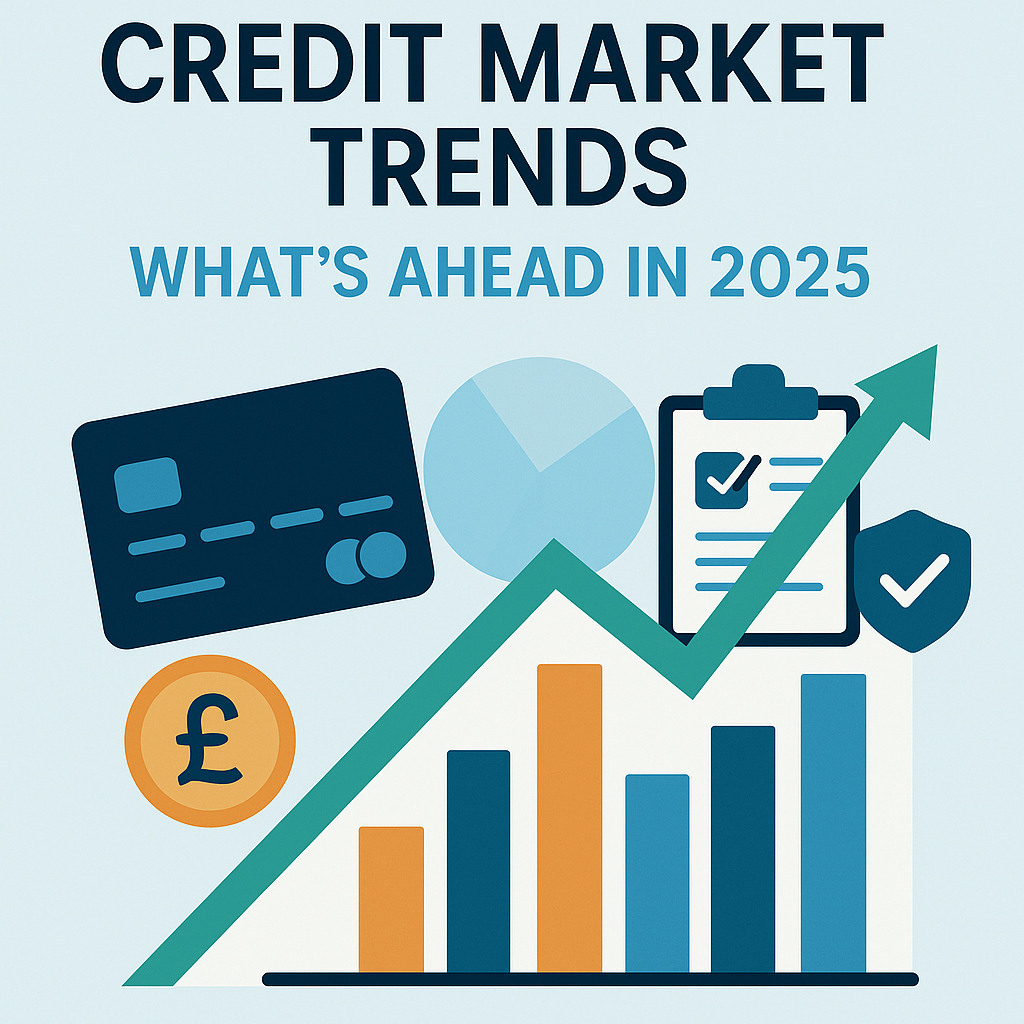As the UK economy continues to adjust to post-pandemic realities, high inflation, and tighter regulations, 2025 is shaping up to be a defining year for the credit market. From new borrowing behaviours to lender caution and emerging technologies, a wave of change is set to impact how consumers borrow, lenders assess risk, and credit scores evolve.
In this post, we explore the key credit market trends to watch in 2025 and how they could affect your credit health.
What's Included?
🔺 1. Consumer Credit Growth Is Slowing — But Balances Are Rising
According to recent data from the Bank of England, overall consumer credit growth is expected to slow, but average balances on credit cards and loans are climbing. This signals that while fewer people are taking out new credit, existing borrowers are relying more heavily on the credit they already have.
What this means for you:
If you’re carrying a balance month-to-month, you may face higher interest costs. Lenders are also keeping a close eye on individual affordability and credit utilisation, so keeping your balances manageable is key for maintaining a healthy score.
🏦 2. Lenders Are Tightening Criteria — Especially on Unsecured Credit
The Bank of England’s Credit Conditions Survey shows that banks and lenders are becoming more cautious, especially with unsecured credit (like credit cards, personal loans, and overdrafts). Many lenders are adjusting their affordability models and requiring more robust income and expenditure checks before approving applications.
What this means for you:
Your credit file and affordability profile will matter more than ever. Keep your credit score in good shape, but also make sure your income and spending are aligned to reflect your repayment capacity.
📈 3. BNPL and Short-Term Credit Under Greater Scrutiny
With the FCA set to regulate Buy Now, Pay Later (BNPL) products in 2026, the groundwork in 2025 will involve more transparency, soft credit checks, and clearer terms for consumers. Expect more traditional lenders to enter the BNPL space and credit reference agencies to start incorporating this data into your file.
What this means for you:
If you use BNPL frequently, make sure payments are made on time — otherwise, late payments could impact your credit score in the near future.
💻 4. Open Banking and AI Are Reshaping Credit Assessments
2025 will see a significant shift in how lenders assess your creditworthiness. Traditional credit scores will still play a role, but Open Banking data and AI-based affordability checks will increasingly supplement or even replace some of the old models.
What this means for you:
Expect lenders to look at your real-time bank transactions to better understand your financial habits. It’s important to maintain not just a strong credit file, but also healthy cash flow and spending patterns.
📊 5. Credit Scores Will Be More Dynamic Than Ever
With the FCA’s Credit Information Market Study now pushing for better data sharing and a new governance body to oversee credit reporting, the UK is headed toward a more transparent and consumer-friendly credit landscape. This includes easier access to your data and a clearer understanding of what impacts your score.
What this means for you:
You’ll have more tools at your disposal to track and improve your score — but also more responsibility to stay informed and proactive. Platforms like Credit-Score.co.uk are helping users stay on top of their score, check their file, and improve their profile — all for free.
💡 Final Thoughts: How to Prepare for the Year Ahead
Here’s how to stay ahead in 2025:
- Check your credit file regularly to spot errors or outdated information.
- Pay down debt where possible and keep credit usage below 30%.
- Review your spending — especially on subscriptions, BNPL, and discretionary items.
- Explore free credit score tools like ours to monitor changes and take action.
The credit landscape is evolving fast — and knowledge is power.
By staying informed and proactive, you can navigate 2025 with confidence and build a credit profile that opens up more financial opportunities.






